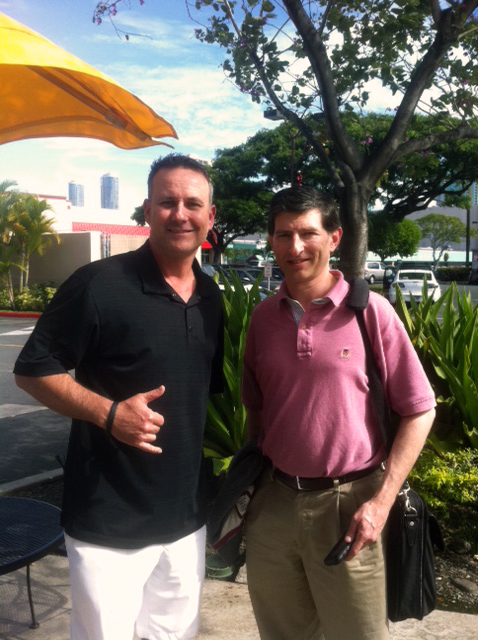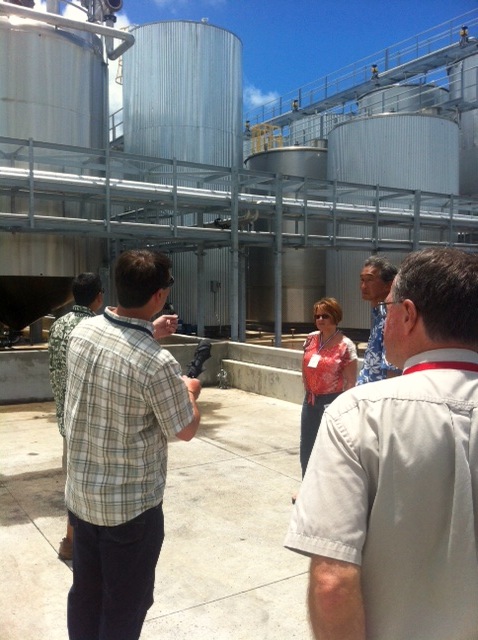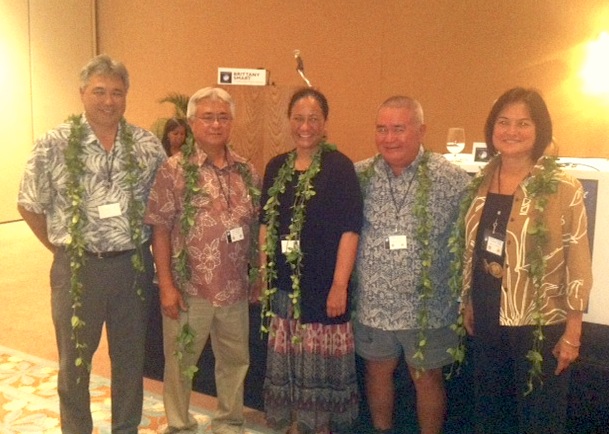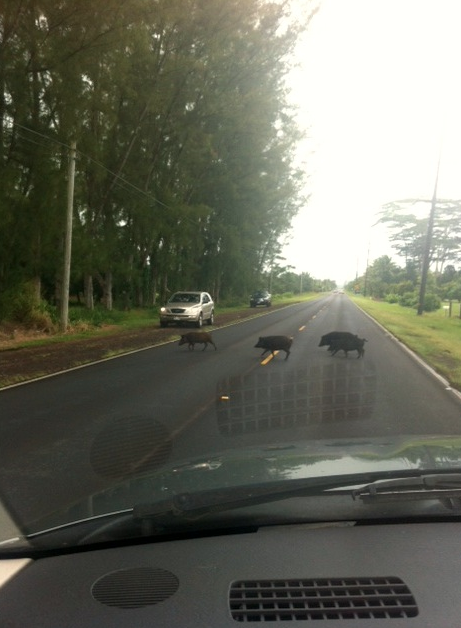Richard Ha writes:
Yesterday there was a County Council meeting, which was called to address the Mayor’s veto of Bills 256 and 257, both related to geothermal.
Eleven folks testified at the Hilo Council chambers and 10 at the Pahoa facility. In Hilo, all were in favor of supporting the Mayor’s veto, and in Pahoa all but three supported it.
We were all puzzled as to why so few members of the opposition showed up. Later we learned that a day before the meeting, the opposition had been notified there would not be a vote. The vote was postponed until August 1st.
The following testimonials are from residents of Leilani Estates, a subdivision that is within a mile of the Puna Geothermal Venture facility. Among much more, they say that some of the folks making claims do not live in the neighborhood, and that they do not know any neighbors who have gotten sick from the geothermal plant.
Here are three testimonials from Leilani Estates residents:
***
I was pleased to hear that the Mayor had vetoed bills 256 and 257 which had somehow made it through the County Council. Now, according to the newspaper at least, the chairman is intending to bring both of these up with the hope of overriding the veto. My opinion, that I have previously stated both in written testimony and in person, is that Bill 256 is incomplete at best and bill 257 is unnecessary.
Bill 256 has been presented to appease a group of activists, many of whom do not even live in the community close to the PGV, which I do live in. It was written using anecdotal comments, hearsay, and with no real science to support it. Bill 257 was written with no regard to the advice from the very agency tasked with creating it. Just why should the County say that one business needs a site specific plan and not another when the responsible department feels that existing evacuation plans are sufficient?
Please, do not:
End Community Benefits funding
Create a poorly defined Buffer Zone
Buy and Condemn perfectly good homes in a thriving subdivision.
De-value my property.
Use County resources unnecessarily.
Legislate in a vacuum, without either medical or scientific data supporting these actions.
Create redundant and unnecessary plans for an unlikely, worst-case scenario.
As I read the existing law there exists a method for increased monitoring and data accumulation. Why don’t you try to find the answers, find the justification for any changes to the law rather than barging ahead based on emotion or, god forbid, politics. I understand that Council members compromise and trade support for each other and that is fine, that’s how it works. But now is the time to get this issue off of the front page and turn your attention to the real issues.
Jay & Sara Bondesen
Leilani Estates
***
***
Aloha Hawaii County Council Members,
My name is Loren Avedon I live in Leilani Estates Puna, and have for the last 3 years. I am writing this testimony is in support of the mayors veto of Bill 256, Draft 2, the legislation to amend Chapter 2 article 36 of the Hawaii County code, the Geothermal Relocation and Community Benefits Fund.
Bill 256 does not represent the “best use” of these funds for many reasons as stated in the Mayor’s veto.
The truth is that a number of homes have been built within a one mile radius after the plant was operational, with full knowledge of the geothermal plant, and its relocation fund.
There is no evidence of any health related issues from the geothermal plant, nor is there evidence that a 1 mile “buffer zone” is necessary. I live approximately on the border of the proposed “buffer zone” and I wish to report that since living in Leilani estates my health has actually improved, and I know not one of my neighbors who are affected by the Geothermal Plant.
Offering 130% of assessed value for the properties would be a fiasco for the county financially, the fund would quickly be depleted just buying homes and property. Where will the additional money come from? What agency will manage those properties? What use will the county make of that land deemed uninhabitable? How will that affect future property values in the area as well as the county’s ability to allow more test drilling for future geothermal power plant locations? There are plans to drill in West Hawaii, what will happen to those properties and their usability?
This bill is a terrible idea, for the reasons stated in Mayor Kenoi’s Veto. This bill will create more debt and deplete the county’s tax revenue base by making it law!? It just doesn’t make any sense?
I know for a fact that you will ruin my property value, as well as your ability to tax more than 1000 lots in the Leilani subdivision. I expect that if this bill passes it will go to the Hawaii Supreme court for many reasons. In addition I am sure that the remainder of our subdivision will file suit for loss of use, and the county’s negligence in allowing a hazardous activity to be conducted so close to any human population. What evidence of this hazardous activity will for the basis of this suit? It will be the bill signed into law by the county council of Hawaii without any evidence and consideration of future impact.
The county council is setting itself for allot of problems with this legislation, and showing poor judgment and instilling “no confidence” in its leadership decision to support this bill. If the council makes this law, not only will you ruin me, but you will ruin the trust I have in your leadership and most likely raise red flags for any future industries that wish to do business in Hawaii. That may cause the county’s bond rating to drop, cause more deficit spending, and further cripple our financial future for all of Hawaii county.
I feel that to expand the relocation program to anyone who moved there knowingly, is a huge mistake and a waste of the County’s funds and bad for the future of Hawaii county.
Please uphold the Mayor’s veto against Bill 256, Draft 2, the legislation to amend the Geothermal Relocation and Community Benefits Fund.
Thank you again for the opportunity to submit written testimony and for your careful consideration of this matter.
Loren Avedon
Leilani Estates, Hawaii




